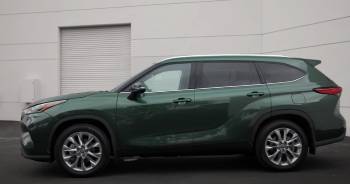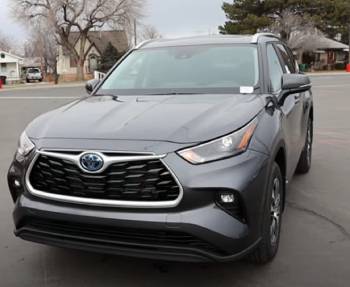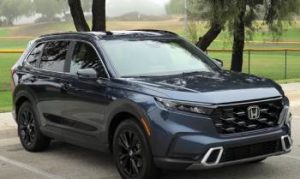Toyota’s Highlander, a powerhouse in the mid-size SUV category, has long been admired for its spacious interior, advanced tech features, and robust performance. Then there’s the Highlander Hybrid, a more eco-friendly iteration that promises fuel efficiency without compromising on power.
The conundrum, though, for potential buyers lies in the tug-of-war between traditional gas and hybrid technology. Let’s delve deeper into the world of the Highlander and the Highlander Hybrid and uncover their pros and cons.
A Brief Comparison Table
| Feature/Aspect | Highlander | Highlander Hybrid |
| Powertrain | Gasoline V6 engine | Gasoline engine + Electric motors |
| Fuel Efficiency | Lower | Higher |
| Environmental Impact | Higher emissions | Reduced emissions |
| Initial Cost | Typically lower | Higher |
| Resale Value | Potentially lower in future | Generally higher |
| Maintenance & Complexity | Familiar, less complex | More complex but reliable |
| Driving Experience | Raw, powerful | Quiet, smooth |
By understanding these core differences and using this comparison table, you can make a more informed choice based on your priorities and preferences.
Both models, with their unique offerings, emphasize Toyota’s dedication to quality and innovation.
Highlander: The Gas-Powered Marvel

Pros:
- Raw Power:
One thing that sets the Highlander apart is its sheer horsepower. The acceleration is smooth, and the engine roar feels authentic.
- Lower Upfront Cost:
Typically, the traditional Highlander model has a slightly lower sticker price compared to its hybrid counterpart.
- Established Maintenance History:
Gasoline vehicles have been around for a while. This means mechanics are well-versed with them, and spare parts are readily available.
Cons:
- Fuel Economy:
The traditional Highlander, while powerful, does not offer the fuel efficiency that the Hybrid version does.
- Environmental Impact:
Gas vehicles tend to release more greenhouse gases compared to hybrids.
Also Read: Differences Between Mobil Delvac 1300 Super And Shell Rotella Oil.
Highlander Hybrid: The Future Today

Pros:
- Fuel Efficiency:
Without a doubt, the Hybrid model steals the spotlight when it comes to fuel savings.
- Eco-Friendly:
Fewer emissions mean a reduced carbon footprint, a nod to Toyota’s commitment to a greener planet.
- Silent Operation:
The hybrid system is inherently quieter, especially when running solely on electric power.
- Regenerative Braking:
This nifty feature converts braking energy into electric power, which is then stored in the battery.
Cons:
- Initial Price Point:
The advanced technology of the Hybrid often means a slightly steeper initial investment.
- Complexity:
Hybrids have both electric and gasoline systems, which can sometimes mean more intricate issues if something goes awry.
Choosing between the Highlander and the Highlander Hybrid largely depends on what you prioritize. If long-term savings and eco-friendliness top your list, the Hybrid is a clear winner.
But, if you’re seeking raw power and have budget constraints, the traditional Highlander might appeal more.
Detailed Differences Between Highlander and Highlander Hybrid
Toyota’s commitment to innovation is evident in both the Highlander and the Highlander Hybrid. Each has its own set of advantages, intricacies, and features.
Let’s dive deep into their core differences to understand which could be the best fit for you.
- Powertrain and Performance
Highlander:
- The traditional Highlander predominantly features a gasoline V6 engine. This provides a more dynamic driving experience with impressive horsepower and torque.
- The traditional engine ensures smoother and rapid acceleration, especially for highway speeds.
- While it boasts a robust powertrain, the standard Highlander does lack in fuel efficiency compared to its hybrid counterpart.
Highlander Hybrid:
- The hybrid variant features a combination of a gasoline engine and electric motors. This ensures that you get the best of both worlds: power when you need it and efficiency for city driving.
- Due to its electric motor component, the Hybrid can operate on pure electric mode under certain conditions, such as low-speed city driving.
- Regenerative braking in the hybrid system captures energy and uses it to recharge the battery, further enhancing its efficiency.
- Fuel Efficiency and Environmental Impact
Highlander:
- The gas-powered Highlander tends to consume more fuel compared to the hybrid. This is due to its reliance solely on the gasoline engine.
- In terms of emissions, the traditional Highlander will generally release more greenhouse gases.
Highlander Hybrid:
- The hybrid system ensures that the vehicle utilizes fuel more efficiently, especially in start-stop city traffic.
- Fewer emissions are released, making it a more eco-friendly choice for those conscious about their carbon footprint.
- Cost and Resale Value
Highlander:
- Typically, the initial investment for the standard Highlander is less than the hybrid model, making it more affordable upfront.
- However, with the growing trend towards eco-friendly vehicles, the resale value of purely gasoline vehicles might see a decline in the future.
Highlander Hybrid:
- Despite the higher initial cost, the Highlander Hybrid offers potential savings in the long run, thanks to its superior fuel efficiency.
- As a more environmentally conscious choice, hybrids tend to have a higher resale value in today’s market.
- Maintenance and Complexity
Highlander:
- The straightforward gasoline engine design of the Highlander means that mechanics are generally familiar with its maintenance and repairs. This can lead to quicker and potentially cheaper servicing.
- Spare parts are more readily available, given the longevity and popularity of gasoline vehicles.
Highlander Hybrid:
- The hybrid combines electric and gasoline systems, which can introduce more complexity when it comes to repairs.
- That said, Toyota’s hybrids have earned a reputation for reliability, and the maintenance might not be as frequent or expensive as some might think.
- Driving Experience
Highlander:
- The traditional Highlander offers an authentic driving feel with its gasoline engine, providing a sense of raw power.
- Engine response and acceleration might feel more linear and predictable for some drivers.
Highlander Hybrid:
- The quiet operation, especially in electric mode, is one of the hallmarks of the hybrid experience.
- Acceleration might feel different due to the dual nature of its powertrain, but many find it smooth and efficient.
Also Read: Differences Among Mobil 1, Castrol Edge And Pennzoil Platinum Engine Oil.
Frequently Asked Questions (FAQs):
Both have their unique selling points. The traditional Highlander offers unadulterated power and is typically more affordable upfront. On the other hand, the Highlander Hybrid promises excellent fuel efficiency and a reduced carbon footprint.
The primary difference lies in the powertrain. The traditional Highlander runs solely on gasoline, while the Hybrid combines a gasoline engine with an electric motor, providing more fuel efficiency and reduced emissions.
The Highlander Hybrid generally offers significantly better fuel economy compared to the traditional Highlander. However, exact figures can vary based on driving conditions and specific model years.
Yes, the Highlander Hybrid has built a reputation for reliability over the years. Toyota’s hybrid technology is tried and tested, offering robust performance and durability.
“Better” can be subjective. Hybrids generally offer better fuel economy and reduced emissions. However, gas vehicles might provide a more authentic driving experience and typically come with a lower upfront cost.
No, the Toyota Highlander Hybrid does not require premium gas. Regular unleaded gasoline should suffice, but always refer to the owner’s manual for specific fuel recommendations.
Conclusion
So there you have it: the Highlander and the Highlander Hybrid in a nutshell. Both vehicles are a testament to Toyota’s commitment to quality, performance, and innovation.
Whether you lean towards the eco-friendly hybrid or the power-packed traditional Highlander, you’re in for a treat with either choice. Safe driving!



